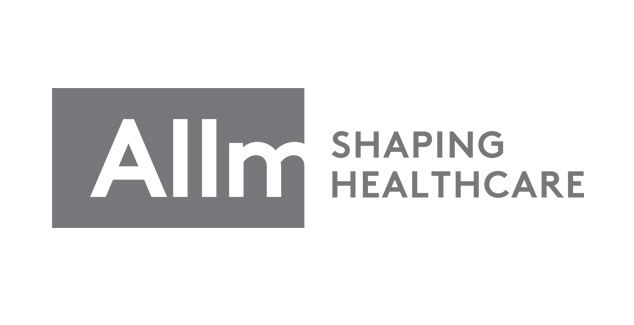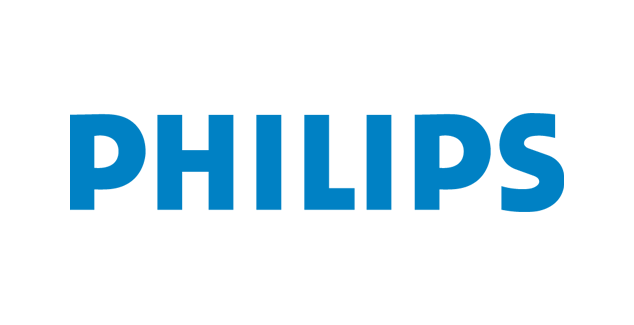Welcome to the third edition of Global Stroke Alliance, for Strokes without frontiers!
The Global Stroke Alliance (GSA) is a highly impactful implementation meeting organized by the World Stroke Organization (WSO) since 2020. Our primary mission is to establish a powerful global alliance committed to enhancing stroke care on a worldwide scale. To achieve this, we foster in-depth discussions on the implementation of evidence-based interventions at all levels of stroke care, including prevention, treatment, and rehabilitation. This prestigious congress serves as a platform that brings together stroke leaders from various countries, distinguished researchers, health professionals, health managers, scientific societies, industry representatives, and patient associations.
At the heart of the GSA is the dissemination of knowledge, exchange of invaluable experiences, and the formulation of region-specific action plans tailored to the unique challenges and opportunities in different parts of the world. Our congress revolves around four fundamental pillars: education, research, organization of services, and political engagement to build public policies. By addressing these pillars, the GSA aims to make significant contributions to the implementation of effective stroke care globally.
A notable highlight of the GSA is the Ministerial Meeting, where representatives from Ministries of Health and Ministries across different countries converge with stroke experts to deliberate on existing gaps, explore the best models of stroke care, and propose potential solutions. Concrete plans for improvement are formulated during these discussions, ensuring tangible and impactful outcomes. In the last Ministerial Meeting held in Brazil in 2022, representatives from 17 Latin American and Caribbean countries, including 7 Ministers of Health, participated, leading to substantial advancements in stroke care in the region.
Looking ahead, the GSA will rotate annually in various regions of the world to promote inclusivity and address the specific needs of each region. We are thrilled to announce that the third edition will take place in New Delhi, India, from September 6 to 8. We aim to leverage the opportunities presented by the G20 Meeting and its managers to create synergy in another edition of the Global Stroke Alliance, featuring a Global Ministerial Stroke Meeting.
We cordially invite you to join us in this global initiative to fight stroke! We have prepared an intense three-day program with exciting highlights. Together, let us transcend boundaries and create a world where stroke care knows no frontiers.
Sincerely,
Sheila Martins
WSO President
September 7, 2023
Workshop for Implementation of Acute Care in India and South-east Asia
Participants:
- Health Ministers of Indian States
- Coordinators of Non-Communicable Diseases in each State
- Ministers of Health of Asia Countries
- World Health Organization (Global and Regional
- Stroke specialists (neurologists and neurointerventionalists)
Program highlights:
- Implementing Acute Stroke Care Discussion
- Identifying gaps and strategies for implementation
- Cost and cost-effectiveness considerations
- Reimbursement policies
- Training initiatives
- Sharing models of success
08:30 - Opening: Welcome and Launch of WSO/NABH Stroke Centers Certification Program
- Sheila Martins, WSO President, Co-Chair of Global Stroke Alliance (Brazil)
- Jeyaraj Pandian, WSO President-Elect, Co-Chair of GSA (India)
- Taskeen Khan, World Health Organization (Switzerland)
Moderators: Sheila Martins, Brazil and Carlos Molina, Spain
8:45 - 9:05 The Global Burden of Stroke and the WHO Strategies to reduce it – Taskeen Khan, Switzerland
9:05 - 9:25 What should be implemented in acute stroke care? Stroke Units, IV Thrombolysis, Mechanical thrombectomy and Stroke Systems of Care – Carlos Molina, Spain
9:25- 9:40 Mechanical thrombectomy: Rationale, impact and feasibility in LMIC – Raul Nogueira, United States (virtual)
9:40 - 9:55 Economic consequences of stroke and the global picture of mechanical thrombectomy access – Dileep Yavagal, United States (virtual)
9:55 - 10:10 Stroke prevention in Atrial Fibrilation from policy perspective - Arvind Sharma, India
10:10 - 10:25 National stroke plans: why and how to implement – Bo Norrving, Sweden (virtual)
10:25 - 10:35 Discussion
10:35 - 10:50 Break
Moderators: Jeyaraj Pandian, India and Mathew Cherian, India, Dr Meenakshi Sharma (Indian Council of Medical Research)
Launch of WSO/NABH Stroke Centers Certification Program
10:50 - 11:10 – The global gaps on stroke care and pragmatic solutions: from implementation to certification of stroke services – Sheila Martins, Brazil
11:10 - 11:25 – A roadmap for achieving essential objectives in post-stroke rehabilitation – Axel Kohlmetz, Austria
11:25 -11:30 –The gaps for rehabilitation and partnerships to reduce them – Dorcas Gandhi, India
11:30 - 11:50 –The Burden of Stroke in India and where are we now – Jeyaraj Pandian, India
11:50 - 12:10 - The Stroke Care models and Health Care Coverage in India and the next steps – PN Silaja, India
12:10 - 12:25 – The importance of quality monitoring - Rupal Sedani, Check Republic
12:25 - 12:40 - Technology and stroke – Padma Vasantha, India
12:40 - 12:55 - Technology and stroke in remote area: country experience - Jacob Johnson from Tezpur, India
12:55 - 13:05 Discussion
13:05 -13:15 Signature of Global Declaration on StrokeSheila Martins (Brazil, WSO President), Jeyaraj Pandian (India, WSO President-elect), Taskeen Khan (Switzerland, WHO)
13:15 - 14:00 – LUNCH
Moderators: Jeyaraj Pandian and Sheila Martins
14:00 - 16:00 Stroke care in South East Asia - round table discussion
16:00 - 16:15 Coffee Break
16:15 - 16:50 Regional/States discussions with moderators about local gaps and concrete potential solutions – action plans
Moderators: Padma Vasantha, PN Sylaja, Arvind Sharma, Gisele Silva, Octavio Pontes Neto, Ana Claudia Souza, Leonardo Carbonera, Violiza Inoa, Marc Ribó, Carlos Molina, Gillian Perue
16:50 - 18:00 Presentations of conclusions per Region/state / Country
18:00- 18:10 – Conclusions
18:10 – 19:30 Angels : Delivering on commitments towards making India stroke free Angels Journey in India
- Angels Journey and way forward - Jeyaraj Pandian
- Best Practise state Govt. Punjab & Haryana - Dheeraj Khurana
- Synergistic Approach for achieving excellence
- Nursing Empowerment - PN Sylaja
19:30 – WSO/Angels Award
September 08, 2023
- Ministerial Stroke Meeting 9:00 - 12:00
- Implementation of Primary Prevention in Primary Care Workshop 14:00 - 17:00
9:00 – 9:20 World Health Organization perspective for acute care and prevention - Taskeen Khan, Swttzerland, WHO
9:20 - 10:05- Models in Low and Middle income countries
- 9:20 – 9:35 The Indian Stroke Care Program
- 9:35 – 9:50 The Brazilian Acute Stroke Care Policy
- 9:50 –10:05 Implementation of Stroke Care in Ethiopia
10:05 – 10:20 Coffee break
Moderators Jeyaraj Pandian, India and Sheila Martins, Brazil
10:20 – 11:20 - Partnership to decrease the global and regional burden of stroke – Angels. RES-Q, Medtronic, Ever, Allm
11:20 – 12:20 – Ministers perspective approaching the organization of stroke services (with specific topics to discuss)
12:30 -12:45 Sheila Martins (Brazil, WSO President), Jeyaraj Pandian (India, WSO President-elect), Taskeen Khan (Switzerland, WHO)
Closing session
Participants: Health managers, health professionals
Moderators: Taskeen Khan and Pradeep Joshi
14:00 – 14:20 The Hearts Program – Taskeen Khan, Switzerland
14:20 - 14:40 The burden of hypertension – Gisele Sampaio Silva, Brazil
14:40 - 15:00 Diabetes and dislipidemia – Leonardo Carbonera, Brazil
15:00 - 15:20 Cardiovascular risk stratification– Taskeen Khan, Switzerland
15:20 - 15:40 Atrial fibrilation –Ana Claudia de Souza, Brazil
15:40 - 16:00 The WHO Best Buys and life style modification - Pradeep Joshi, WHO SEAR
16:00 - 17:00 Implementation models and main results
HEARTS Program in south of Brazil, Sheila Martins, Brazil
India Hypertension control initiative – Prabhdeep Kaur, India
RESOLVE Initiative – Anupam Khungar Pathni, India
17:00 Closing remarks
September 06th - 08th
Side Event:
WSO Workshop for Neurointerventionalists
Coordination: Violiza Inoa
Organization: Violiza Inoa, Gillian Perue, Nitin Goyal
Participants: Neurointerventionalists from India and South East Asia
Curriculum:
A 20-hour Intensive in person workshop combining didactic and physician skills sessions.
Target Audience: Practicing neuroendovascular physicians. Interested physicians should apply with:
- Proof of primary specialty training: neurosurgery, neuroradiology, or neurology
- Proof subspecialty training
- Ongoing case log that demonstrates their current work in neurointerventional
Wednesday, September 6th 2023
8:00 - 8:15 Welcome and introduction: course orientation
8:15 - 9:00 Patient Selection for Mechanical Thrombectomy and Large Core Mechanical Thrombectomy Trials - Gillian Gordon Perue, United States
9:00 - 9:45 Tips for Endovascular Access - Violiza Inoa, United States
9:45 - 10:00 Coffee Break
10:00 – 10:45 Approach to Challenging Endovascular - Nitin Goyal, United States
10:45 – 11:00 Overcoming local challenges to performing Mechanical Thrombectomy in India - Vipul Gupta
11:00 - 12:00 Complex Mechanical Thrombectomy Cases - Vipul Gupta and Dr. Vikiram Huded - Moderated by Nitin Goyal and Violiza Inoa
12:00 - 13:15 Lunch
13:15 - 15:30 Mechanical thrombectomy: hands on skills session
15:30 - 15:45 Coffee Break
15:50 - 18:00 Mechanical thrombectomy hands on skills session
8:30 - 10:35 Join the Global Stroke Alliance session
10:35 Break
10:50 - 11:25 Management of mechanical thrombectomy complications: intraoperative and post-operative - Marc Ribo, Spain
11:25 – 12:30 Complex mechanical thrombectomy Indian cases - Gaurav Goel, India
Moderated by Nitin Goyal and Violiza Inoa, United States
13:00 - 14:00 Lunch
14:00 - 18:00 Mechanical thrombectomy hands on skills session
9:00-9:30 Case Review: Organizing Stroke Networks to facilitate Acute Endovascular Therapies - Octavio Marques Pontes Neto, Brazil
9:30 – 12:00 Mechanical Thrombectomy Skills Sessio
12:30 – 13:00 Closing remarks, Signature of Global Declaration on Stroke
The Leela Ambience Convention Hotel Delhi
Telefone: +91 11 7172 1234
 Platinum
Platinum
 Gold
Gold
 Gold
Gold
 Corporate Supporters
Corporate Supporters

 Member login
Member login
